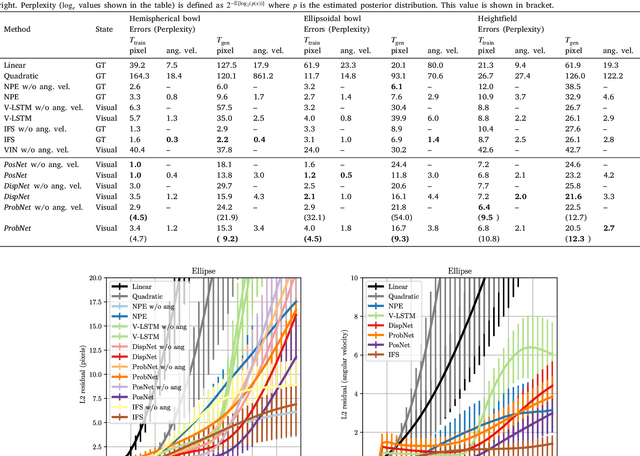Taking Visual Motion Prediction To New Heightfields
Paper and Code
Dec 22, 2017



While the basic laws of Newtonian mechanics are well understood, explaining a physical scenario still requires manually modeling the problem with suitable equations and estimating the associated parameters. In order to be able to leverage the approximation capabilities of artificial intelligence techniques in such physics related contexts, researchers have handcrafted the relevant states, and then used neural networks to learn the state transitions using simulation runs as training data. Unfortunately, such approaches are unsuited for modeling complex real-world scenarios, where manually authoring relevant state spaces tend to be tedious and challenging. In this work, we investigate if neural networks can implicitly learn physical states of real-world mechanical processes only based on visual data while internally modeling non-homogeneous environment and in the process enable long-term physical extrapolation. We develop a recurrent neural network architecture for this task and also characterize resultant uncertainties in the form of evolving variance estimates. We evaluate our setup to extrapolate motion of rolling ball(s) on bowls of varying shape and orientation, and on arbitrary heightfields using only images as input. We report significant improvements over existing image-based methods both in terms of accuracy of predictions and complexity of scenarios; and report competitive performance with approaches that, unlike us, assume access to internal physical states.
 Add to Chrome
Add to Chrome Add to Firefox
Add to Firefox Add to Edge
Add to Edge